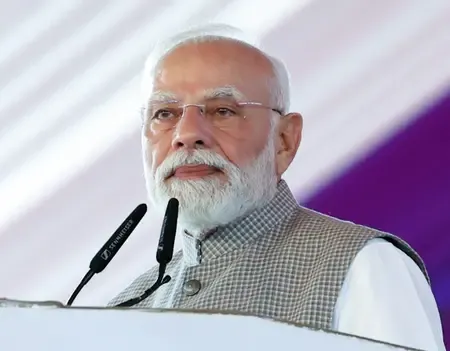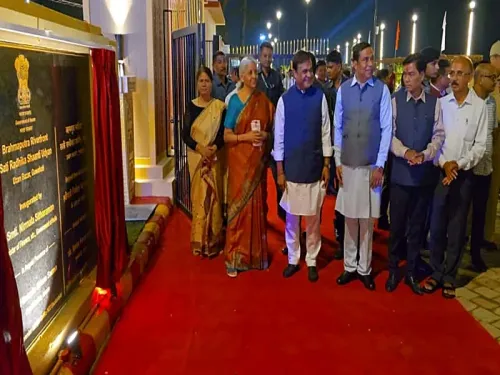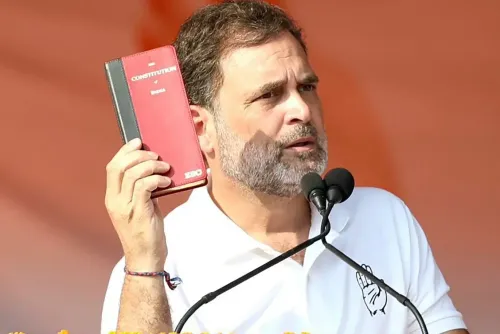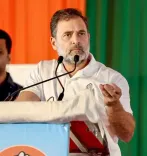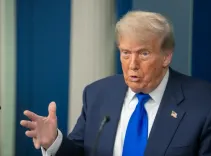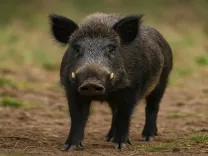Is Vande Mataram the Heart and Soul of India?

Synopsis
Key Takeaways
- Vande Mataram celebrates 150 years of inspiring unity.
- It is a foundational anthem for India’s identity.
- The song has historical significance dating back to the independence movement.
- It continues to evoke patriotism and collective spirit among Indians.
- Support for local products is essential for a self-reliant India.
Gandhinagar, Nov 7 (NationPress) Celebrating 150 years since the inception of India’s National Song Vande Mataram, the Bharatiya Janata Party (BJP) in Gujarat held extensive festivities throughout the state on Friday, resonating with patriotic excitement from educational institutions to governmental establishments.
Guided by Prime Minister Narendra Modi, massive singing events took place nationwide to honor the song that once fueled India’s struggle for independence and remains a unifying force for the country.
At Sarai-Umbargaon, BJP Gujarat President Jagdish Vishwakarma spearheaded the celebration, declaring Vande Mataram as the very “soul and identity of India.”
In his tribute to the song's author, Bankim Chandra Chattopadhyay, he stated, “The phrase Vande Mataram has the capacity to ignite the spirit of nationalism, energizing every Indian with zeal, devotion, and determination. It transcends mere melody; it embodies a revolutionary mantra.”
Chief Minister Bhupendra Patel participated in a gathering at the Gujarat Legislative Assembly, joining thousands who sang the complete version of Vande Mataram. Similar celebrations unfolded across various districts, where students, educators, and officials united to pay tribute to the enduring composition.
Reflecting on its legacy, Vishwakarma noted that Vande Mataram was first performed in 1896 by Rabindranath Tagore at the Calcutta session of the Indian National Congress, later receiving national recognition in 1950 by Dr. Rajendra Prasad. “During the independence movement, it became a rallying cry against colonial oppression. Its influence was so profound that the British government prohibited its performance,” he remarked.
He further criticized the Congress party for exhibiting “intolerance” towards Vande Mataram, recalling instances when Congress-led administrations and leaders resisted its recitation. “140 crore Indians will never forget those who attempted to suppress Vande Mataram. The Congress has wronged Bharat Mata,” he asserted.
Encouraging citizens to embrace the vision of Prime Minister Narendra Modi, Vishwakarma called for collective efforts to make India Aatmanirbhar (self-reliant) by endorsing local products and bolstering the economy.
The event saw participation from Ministers Kanubhai Desai, MPs, MLAs, educational officials, teachers, and students. The atmosphere was charged with patriotic spirit as attendees sang Vande Mataram in harmony, celebrating a significant milestone in India’s narrative of pride, unity, and devotion to the motherland.


